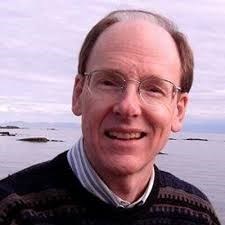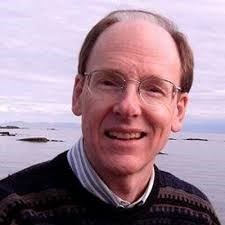Think of yourself on one of your best days, when you feel alive and engaged, and things are going right. At times like these, we have an inner confidence, enthusiasm and a belief in possibilities. It’s as though we see the world through joyful and powerful eyes. We have lots of energy. We willingly share our time and talents with others, and feel richer because of it. Ideas and results flow naturally. And we feel more connected to ourselves, others, nature and the world around us.
Now, for a few moments, think of yourself on your worst day, when everything feels like a struggle. Perhaps you experienced a heaviness, fear or desperation; a feeling that nothing you said or did would work, and there was no hope of change. Or maybe it was a boiling anger and frustration because life seemed out of control and no one else seemed to care. In times like these, we can feel lost, disconnected and alone; yet strangely, we resist asking for help and support. Even if others offer it, we often turn them away, believing that no one else really understands or that we don’t deserve it.
You will have your own words for the two kinds of days I’ve just described. It’s a very personal thing. Yet the truth is that we have all had these kinds of days, thoughts and feelings – because that is the ‘dual nature’ of human experience. (See more in Part 1 here.) And it is these insights that may just help us discover how to create more positive change in our lives and in our world.
Our Light and Dark Sides
After working with these concepts for over 35 years, here’s how I’ve come to understand this ‘split’ in human nature:
One mindset within us – I’m going to call it our whole or loving self – experiences itself as connected to life. Drawing on a calm, confident centre, it lives and works with meaning and purpose. It knows its own values and needs, yet listens to others. It takes risks, while forgiving mistakes. When we live in this state of being, we express qualities such as aliveness, compassion, caring and understanding. We see our own well being and interests as inextricably linked to those of others. And we often experience ourselves as part of a greater whole, web or source of life.
For those more spiritually-oriented, this aspect of mind could be called the Spirit or Christ mind; the enlightened or true Self; the luminous mind; or the angel of our better nature.
The other mindset within us – I’ll call it our separate or fear-based self – approaches life in the opposite way. Seeing us as separate from others, it experiences a continuing sense of lack, fear and doubt. It worries about the future, and regrets or feels guilty about the past. Believing that the source of well-being lies outside of ourselves, it is always seeking to “get more” from others – power, money, love or possessions – in order to feel safe and happy. As a result, it is frequently in conflict.
To those who think in spiritual terms, this might be called the ego mind; the evil or false self; the defiled mind; or the angel of our fallen nature.
This side of us believes that other people (and the world) are the cause of our unhappiness and responsible for our problems, and therefore does everything it can to protect itself. Even with those we care about, this mindset feels some level of fear. And it uses this, in one of its many forms – attack, guilt, intimidation or control – to get what it wants. It also tries to feel safe and secure by being right, important, better than others, or putting them down; or, paradoxically, by suppressing our own truths, beating ourselves up when we make mistakes, or holding us back from living fully in the world.
The whole mind thinks in terms of “both/and”: the economy and the environment; making a living and having a life; having abundance for ourselves and others; valuing my beliefs and yours. The separate mind sees things as “either/or”: the economy or the environment; working or having a life; your interests or mine. Believing that it needs to choose between fundamental needs, this mindset creates even more conflict because it is always pitting one against the other.
Both aspects of mind are active within us. And it is whichever one we choose that guides our choices and behaviour.
A Recipe for Conflicted Living
These two sides of us are so different they are like light and dark, night and day. Yet we regularly shift from one mindset to the other, without being aware that we are doing so.
To see this, simply look at how they show up in everyday interactions: We value and admire one political leader or party, then put another down. We care about the environment, but mistrust business; or we value making money, and disregard nature and the people around us. We love our friends, but judge our enemies. We receive money from someone, yet the next minute we are afraid of not having enough. Or we experience something really good in our lives – and then start worrying that it’s not going to last.
The movement between these two mindsets seems almost like an On/Off switch. We continually switch back and forth from one ‘self’ to the other, in which we are either:
|
Aware (want to know) |
or |
Asleep (want to avoid, not know) |
|
Focused on common interests |
or |
Focused on self interest |
|
Accepting and understanding |
or |
Using fear or guilt to motivate |
|
Empowering |
or |
Controlling |
And as a result, our actions and life experience reflect this conflict inside of us.
It’s More than just “Values”
Observing this split within, and how our thinking shifts with each new situation, has shown me that behaviour is more than just the result of the values we hold. It isn’t that some people care about nature, kindness and peace, and others don’t. Or that some value family, money and security, and the rest do not. It’s that we ALL care about all of these some of the time; but at other times, our inner priorities shift.
When we feel threatened or afraid for our well-being, we switch from our “whole” mindset to our “separate” mindset. The values which then guide our choices and behaviour shift as well: from caring to self-protection, from shared interests to self-interest, from connection to conflict. And that gets expressed in daily living in many different ways:
|
We want to |
Then we shift to |
|
Create a kinder, gentler world |
Attacking those who disagree with us |
|
Live healthier, happier lives |
Overspending, overeating, overworking |
|
Be more fully ourselves |
Avoid standing out or being different |
|
Grow and succeed |
Resist taking risks or making mistakes |
|
Experience more love/connection |
Judging/getting angry at our spouse, children or co-workers |
|
Feel more confident |
Telling ourselves we’re not good enough, and holding ourselves back |
This leaves us feeling deeply conflicted inside. It leaves others uncertain about who we are, what we really believe, or how we feel about them. And it contributes to more negative results in what we create in our world.
What does this have to do with creating positive change?
If what I’m describing is actually going on inside each and every one of us, it’s no wonder we feel confused inside, or feel like we’re living in a crazy world. We are! But it can also give us significant insights into how to deal with our problems.
If human nature does operate this way, it can help us to understand
- What’s driving people’s “negative” behaviours: e.g. why we consume and compete so much, and experience so many conflicts. (This was what led me to shift my own thinking and approach to change, many years ago.)
- What’s shaping our behaviour, and the difficulties we have making progress in our own life and work. (Who among us isn’t without some problems, or confused about what to do next?)
- How we can become more effective in creating healthy, sustainable change in our personal lives, our relationships and our world.
It’s the last of these that I want to explore in my next article, using some real life examples from different fields of change.
Coming soon: Is What We’re Doing Working?
 Eric Hellman is a communications and change coach in Vancouver. His past work includes co-founding the first Blue Box recycling program, and co-writing the Canadian bestselling book Leadership from Within. His current work is called “conscious change.” For more information, go to http://intro.consciouschange.info or email him at erichellman@rogers.com.
Eric Hellman is a communications and change coach in Vancouver. His past work includes co-founding the first Blue Box recycling program, and co-writing the Canadian bestselling book Leadership from Within. His current work is called “conscious change.” For more information, go to http://intro.consciouschange.info or email him at erichellman@rogers.com.
You can read more articles on our interfaith blog, Spiritually Speaking, HERE


